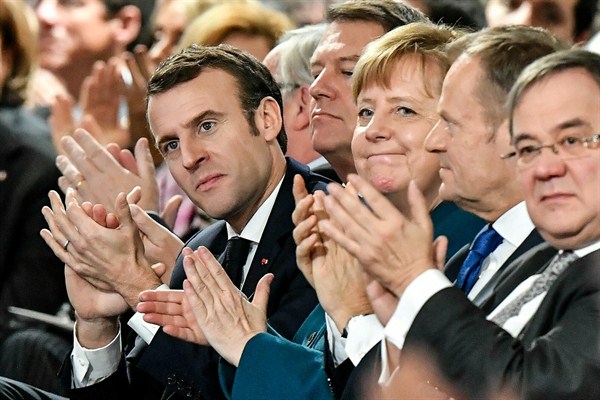European Parliament elections usually play two roles. The first is a practical one. The voting determines the makeup for the next five years not only of the European Union’s deliberative branch, but also indirectly its executive branch, the European Commission. The second is symbolic. Amid widespread apathy and abstention, European Parliament elections often amount to national referenda on the popularity of sitting governments across Europe.
On both counts, French President Emmanuel Macron has reason to worry about this year’s elections, which take place next week. His Republic on the Move party, or LRM, has run a lackluster campaign and could finish behind the euroskeptic National Rally of Marine Le Pen, who Macron defeated in the 2017 presidential contest. Even after the elections, the LRM delegates will have few natural allies among the European Parliament’s political coalitions, which group together like-minded members from the various national delegations. As for Macron’s popularity, although it has rebounded since the height of the Yellow Vest movement in December, he has not managed to significantly expand his political base beyond what he registered in the first round of the 2017 presidential election.
If all that weren’t enough cause for concern, Macron has added another dimension to these elections, framing the vote as a showdown between liberal pro-European reformers and illiberal, anti-European spoilers, overshadowing any discussion of what role the EU will play in a world order that is undergoing rapid, structural transformations.

